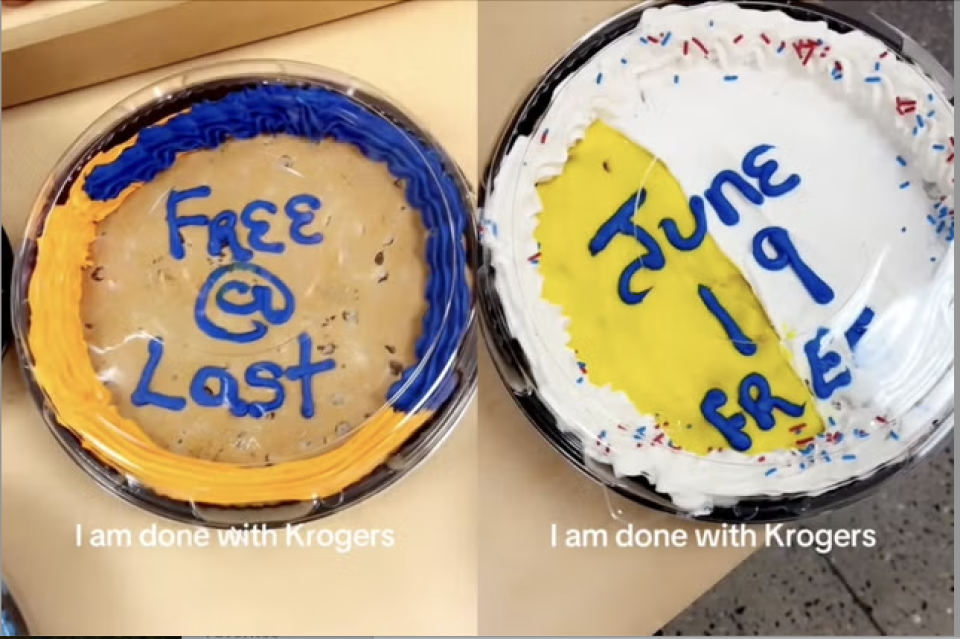
Kroger Faces Turbulent Times: Store Closures, Leadership Shakeup, and Juneteenth Backlash
Kroger, one of the largest grocery chains in the United States, is undergoing a period of significant upheaval. The company has announced plans to close 60 locations across 16 states over the next 18 months, citing disappointing financial results. This development follows recent controversies and a significant leadership change that has further shaken consumer trust.
Kroger reported $45.1 billion in first-quarter sales—down slightly from $45.3 billion the previous year. In response, the company plans to shut down underperforming locations as part of a broader cost-saving strategy. According to CBS News, this strategy could lead to modest financial benefits that will be reinvested in improving the customer experience across the remaining stores, potentially enhancing the shopping experience for customers.
Among the confirmed closures is the McKinney, Texas, location at 1707 W. University Drive. A Kroger spokesperson explained, “This closure is part of a larger company-wide decision to run more efficiently and ensure the long-term health of our business.”
While the exact locations have not yet been revealed, Kroger noted that approximately 5% of the closures will occur in Cincinnati, its corporate hometown. This news has sparked concern among community leaders, particularly in low-income areas where Kroger serves as a vital source of fresh and affordable groceries.
Kroger has committed to its affected employees, assuring them that they will be offered opportunities to transfer to other stores, demonstrating the company’s dedication to its workforce.
The store closures could have a significant impact on neighborhoods that already struggle with limited access to food. Kroger often plays a central role in supplying fresh produce and essential items to underserved communities. As stores close, fears of growing food deserts are mounting—especially in areas where Kroger is one of the few full-service grocers.
In Cincinnati alone, Kroger employs roughly 20,000 people and operates 76 stores across Greater Cincinnati and Northern Kentucky. The company’s decisions, therefore, carry serious economic and social implications for the region, raising concerns about potential job losses and economic downturn.
Just days before the closure announcement, Kroger found itself at the center of a social media firestorm. On June 18, TikToker @blaq.monalisa posted a video from a Kroger location in Atlanta showcasing poorly decorated Juneteenth-themed desserts. The cakes—featuring phrases like “Free @ Last” and “June 19 Free”—were criticized for their lackluster presentation, which many felt trivialized the significance of Juneteenth, a day commemorating the end of slavery in the United States.
“This is some bulls**t. Who the h*** made this ugly a** s**t,” @blaq.monalisa said in the video, contrasting the Juneteenth offerings with nearby cakes that were more visually appealing and professionally decorated. Her frustration echoed a broader sentiment that the desserts trivialized the significance of Juneteenth.
The video quickly went viral, with many viewers calling out Kroger for appearing tone-deaf and disrespectful.
The company is also navigating leadership turbulence. In March, longtime CEO Rodney McMullen resigned following an internal investigation into conduct deemed “inconsistent” with the company’s ethics policies. While Kroger has not disclosed the nature of the misconduct, it clarified that it was not related to the company’s financial performance or interactions with other associates at Kroger. This departure, coupled with economic pressures and public backlash, has compounded uncertainty for the company’s future direction.
The timing of McMullen’s departure, coupled with financial pressures and public backlash, has compounded uncertainty for the company’s future direction.
As Kroger grapples with multiple challenges—from shrinking profits and store closures to public relations missteps and leadership changes—its decisions will have lasting impacts on both consumers and the communities it serves. For many, especially in underserved areas, the stakes are high.
Community leaders and advocates are urging Kroger to prioritize equity and accessibility in its ongoing business strategy. With 409,000 employees nationwide, including tens of thousands in the Cincinnati region alone, Kroger’s next steps will be closely watched by consumers.
Stay tuned for continued coverage of Kroger’s impact and community responses.
















